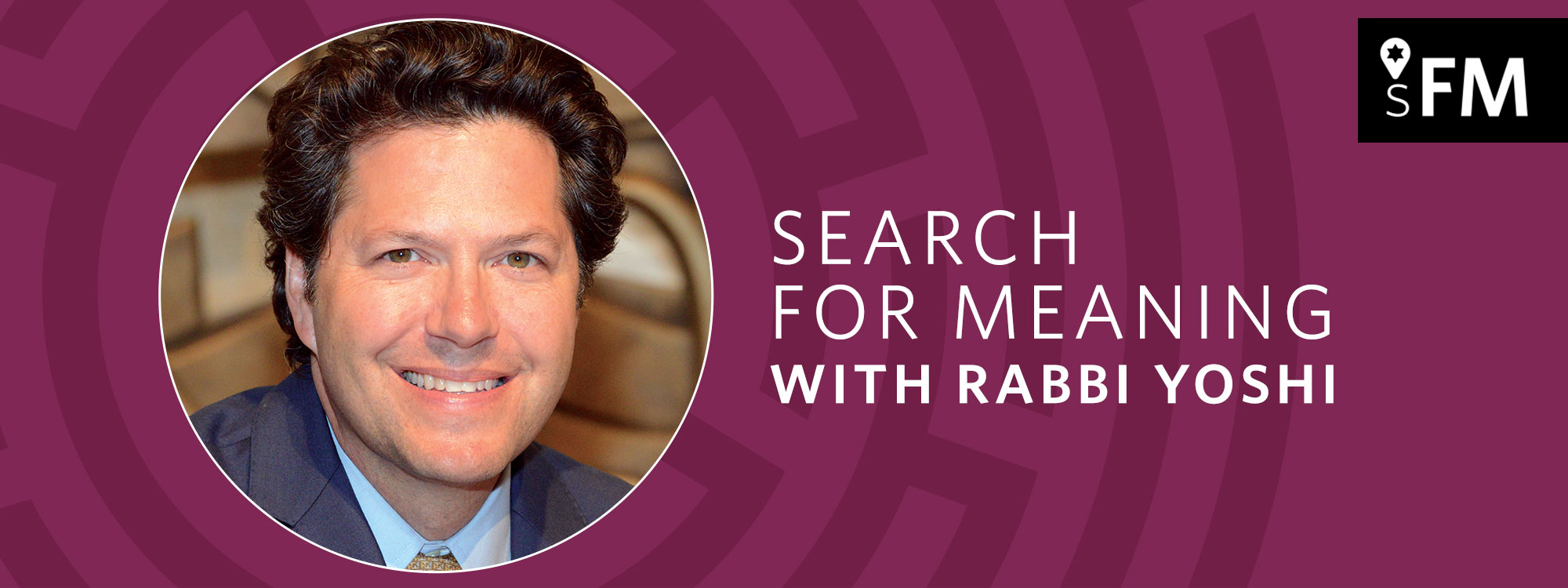In the latest edition of his Search for Meaning podcast, Stephen Wise Temple Senior Rabbi Yoshi Zweiback hosts friend, colleague, collaborator, and author Rabbi Matthew Gewirtz, who has just published his memoir: “To Build a Brave Space: The Making of a Spiritual First Responder.”
The senior rabbi at Congregation B’nai Jeshurun in New Jersey, Rabbi Gewirtz had finished a manuscript just before the COVID-19 pandemic, but the outbreak forced him to re-frame (and in truth, re-write) the entire book. He did that while guiding his synagogue through unprecedented challenges and tending to the health and wellbeing of his own family.
“I had to write the book twice, but the second time, [the publisher] wanted it framed as a memoir,” Rabbi Gewirtz says. “He thought that the credibility I would gain from people learning about me as a human being would allow me to make the political commentary I make at the end of the book.”
Originally, Rabbi Gewirtz rejected the subtitle, “The Making of a Spiritual First Responder.”
“Who are we to be spiritual first responders after all?” he says. “EMTs and doctors and nurses and frontline workers are working with blood and life-and-death emergencies all the time.”
His publisher insisted: Clergy like him were serving the soul of people in the same way, and in many instances, throughout the lives of their congregants.
Rabbi Gewirtz—the son of a Hofstra professor, the dyed-in-the-wool New Yorker raised in Manhattan—immediately thought of September 11, 2001, when he was a mere four years into his rabbinate. He vividly recalls how his senior rabbi Rodeph Sholom directed the clergy team to look up which congregants had offices in the Twin Towers. They divvied up the list and went from apartment building, knocking on doors and ringing doorbells. He recalls entering the apartment of one congregant who died in the attack, and then, years later, counseling that congregant’s daughter through years of having to re-live such a personal loss in front of crowds at memorial ceremonies.
The two rabbis discuss middle-of-the-night calls and unexpected tragedies, but also the miracles they respond to on a daily basis, from weddings to children born to couples who had spent years trying. Both sports fans, they view their lives through the lens of a baseball player who still knows that he can still hit a home run, even after striking out four times the night before. As they delve into the Jewish perspectives on hope and renewal, they explore the roots of the morning prayer for gratitude, “Modeh Ani,” the tragedy in Turkey and Syria, and the current political climate.

